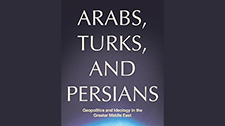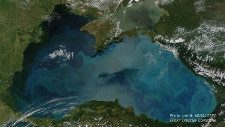
Svante E. Cornell
Director
Svante E. Cornell is a co-founder and Director of the Institute for Security and Development Policy. He is the Director of the Central Asia-Caucasus Institute & Silk Road Studies Program, the Joint Center operated by ISDP in cooperation with the American Foreign Policy Council (AFPC). Dr. Cornell is also a Senior Fellow for Eurasia at AFPC. His main areas of expertise are security issues and politics in Southwest and Central Asia, with a specific focus on the Caucasus and Turkey. He is the Editor in Chief of the Joint Center’s bi-weekly publications, the Central Asia-Caucasus Analyst and Turkey Analyst, and oversees the Joint Center’s Silk Road Papers series of occasional papers.
Dr. Cornell is the author of several books, including Small Nations and Great Powers, the first comprehensive study of the post-Soviet conflicts in the Caucasus, and more recently, with S. Frederick Starr, The Long Game on the Silk Road: US and EU Strategy for Central Asia and the South Caucasus. His articles have appeared in numerous leading academic and policy journals as well as the U.S., European, and regional press. Cornell previously served as an Associate Professor of Government at Uppsala University and Associate Research Professor at Johns Hopkins University’s Paul H. Nitze School of Advanced International Studies. He was educated at the Middle East Technical University in Ankara, Turkey, and holds a Ph.D. in Peace and Conflict Studies from Uppsala University. He is a member of the Swedish Royal Academy of Military Science and a Policy Advisor to JINSA’s Gemunder Center for Policy.
Publications by Svante E. Cornell
-
Is Central Asia Stable? Conflict Risks and Drivers of Instability
In 2022, violence erupted in four different areas of Central Asia. These episodes of violence were very different from each other, and all were contained within days or weeks. The […]
-
Arabs, Turks and Persians: Geopolitics and Ideology in the Greater Middle East
For decades, the Greater Middle East has been a leading challenge to American foreign policy. This vast region – ranging from North Africa in the west to Afghanistan in the […]
-
Central Asia in the Energy Transition
The United States, Europe, the United Nations and more are promoting a top-down energy transition from fossil fuels to renewable energy, which shows no signs of emergence. Under this scenario, […]
-
A New Spring for Caspian Transit and Trade
Major recent shifts, starting with the Taliban victory in Afghanistan and Russia’s war in Ukraine have led to a resurgence of the Trans-Caspian transportation corridor. This corridor, envisioned in the […]
-
Promise And Peril In The Caucasus
America’s national security bureaucracy separates the Caucasus and the Middle East into different bureaus, with Central Asia in yet another office. This is part of the reason the U.S. has […]




